
Digital Convergences: New Pedagogies and Hyperrealities for Learning with the Cultural and Creative Industries
On 21 January 2021, Professor Susan Schreibman and Dr. Marianne Huang co-delivered the keynote for the closing conference of DigiMood: Digital Modules of Diaditac for Cultural and Creative Industry. DigiMood is a sister project of IGNITE’s: both projects were funded at the same time by the Creative Europe Directorate of the European Union, and as such, giving the keynote at the end of both our projects seemed a fitting way to end our journey with IGNITE.
The goal of both projects was to develop a suite of freely-available online courses for Master’s Students. As such, three lines of intersection or convergences between our projects emerged: 1) New Pedagogies; 2) Online Education; 3) The Future of Education in the Humanities. While DigiMood focused on modules for the Fashion Industry, they took a design thinking approach to module development, yet another convergence between our projects.
In reflecting on what IGNITE accomplished for this keynote, we emphasised that the #dariahTeach platform underpinning our course content facilitate new ways of teaching and learning, one that proved resilient, useful, and welcome by our students, especially during the Covid-10 lockdown. Our online offerings are demand-based and can be used in a variety of ways — within classroom settings or for lone learners wishing to upskill or to learn from the experts through our videos and case studies. The digital has allowed the IGNITE team to be imaginative about the ways we teach, to be creative in delivering content, as well as speculative in our design.
Both DigiMood and IGNITE have developed content for MA students to use technology in creative and experimental ways, enabling a new generation of arts and humanities students to cross the digital divide, bringing their values and expertise to become players in tackling some of the world’s most persistent and prevalent issues.
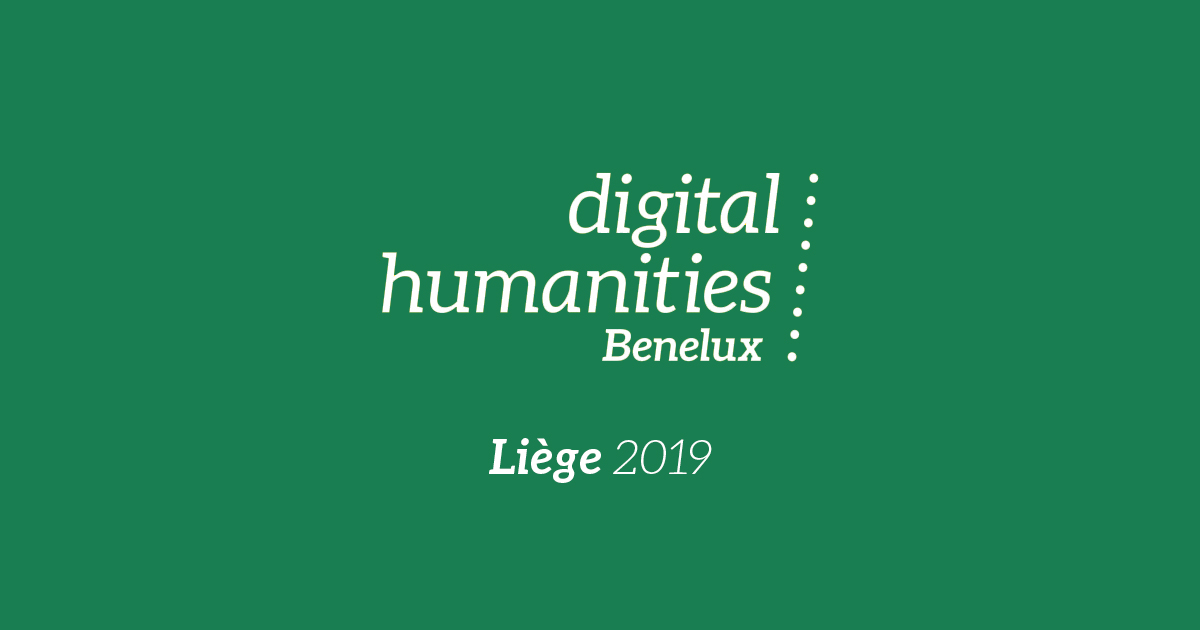
From 11-13 of September 2019, the University of Liège hosted the 6th Digital Humanities Benelux Conference in Liège, Belgium. The aim of this annual conference is to encourage collaboration within the field of Digital Humanities between Belgium, the Netherlands, and Luxembourg. Scholars were invited to present their latest projects and research findings. This included prof. Susan Schreibman and assistant prof. Costas Papadopoulos from Maastricht University, who presented the IGNITE curriculum and how it is used in teaching at the MA level.
On Friday, the third day of the conference, Susan Schreibman and Costas Papadopoulos held a session called Design Thinking & Maker Culture: Digital Humanities Meets the Creative Industries The IGNITE Curriculum. In their presentation, Costas and Susan explained the rationale behind the development of the IGNITE curriculum, from learning to build VR experiences to better understanding digital narratives, gameplay design, and the practicalities of creating digital products. A pedagogic principle of the courses is project and problem-based learning, featuring case studies and scenarios. As a result, instead of promoting static learning, the digital learning environment reflects the pedagogical approach of encouraging reflective learning via digital tools and methods.
The presentation was well-received by the audience. Remarks included comparisons to similar initiatives, questions about the practicalities of the project’s implementation, and reflections on the content of the IGNITE curriculum.
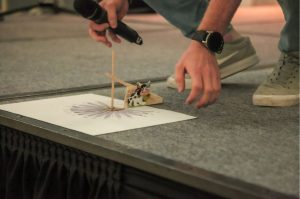 On the 4th of September, Susan Schreibman and Shiro Inoue delivered a lecture and creative session titled “The Power of Stories” for the students at Zuyd Hogeschool in Heerlen. Through various activities we exemplified how the richness of storytelling as a means of communication can compel the viewer’s emotions, critical thinking, imagination or socio-cultural interpretation of the message. In a creative session, students were encouraged to create a story using everyday objects (e.g. coffee filters) as “media,” and sharing their original stories with their peers.
On the 4th of September, Susan Schreibman and Shiro Inoue delivered a lecture and creative session titled “The Power of Stories” for the students at Zuyd Hogeschool in Heerlen. Through various activities we exemplified how the richness of storytelling as a means of communication can compel the viewer’s emotions, critical thinking, imagination or socio-cultural interpretation of the message. In a creative session, students were encouraged to create a story using everyday objects (e.g. coffee filters) as “media,” and sharing their original stories with their peers.
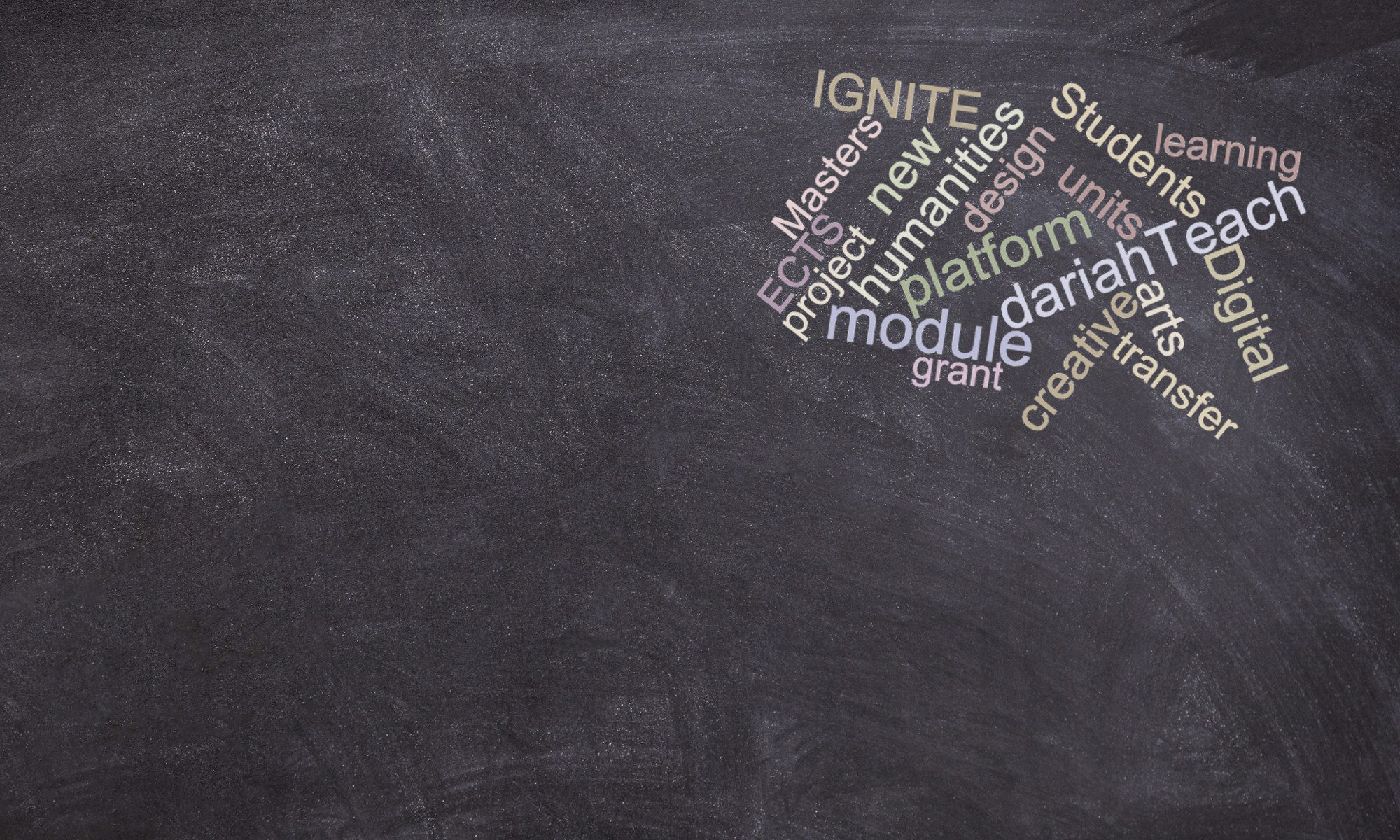


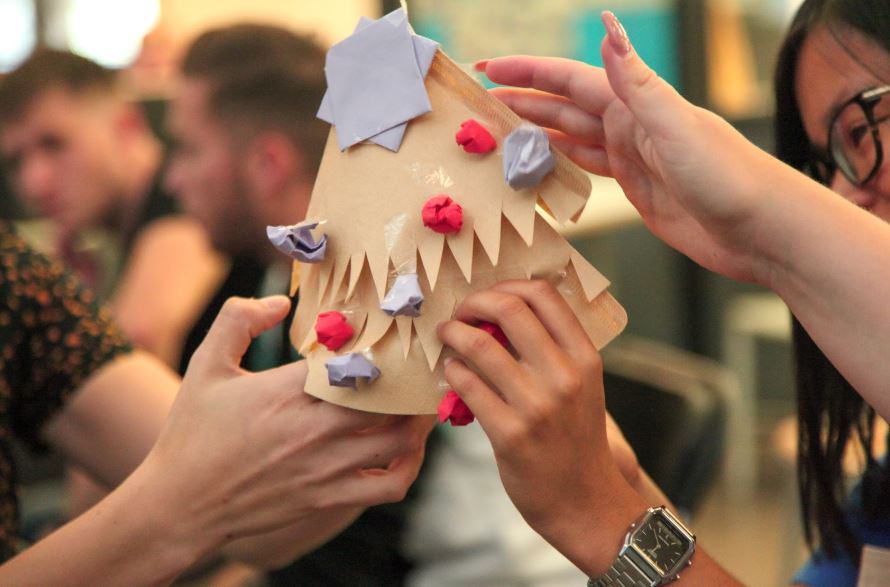
 On the 4th of September, Susan Schreibman and Shiro Inoue delivered a lecture and creative session titled “The Power of Stories” for the students at Zuyd Hogeschool in Heerlen. Through various activities we exemplified how the richness of storytelling as a means of communication can compel the viewer’s emotions, critical thinking, imagination or socio-cultural interpretation of the message.
On the 4th of September, Susan Schreibman and Shiro Inoue delivered a lecture and creative session titled “The Power of Stories” for the students at Zuyd Hogeschool in Heerlen. Through various activities we exemplified how the richness of storytelling as a means of communication can compel the viewer’s emotions, critical thinking, imagination or socio-cultural interpretation of the message.